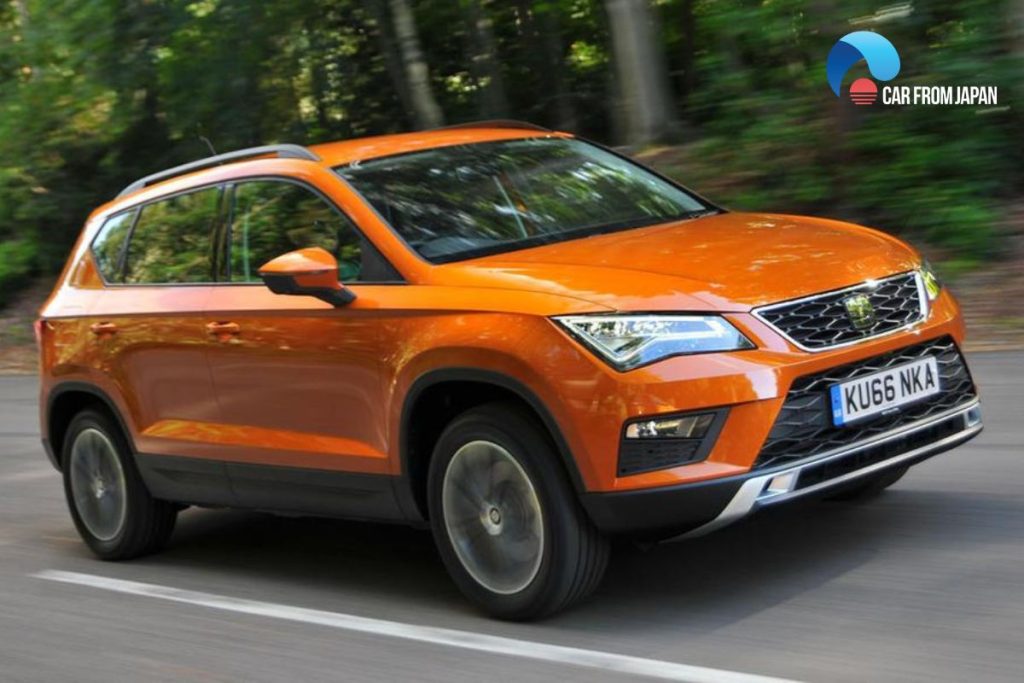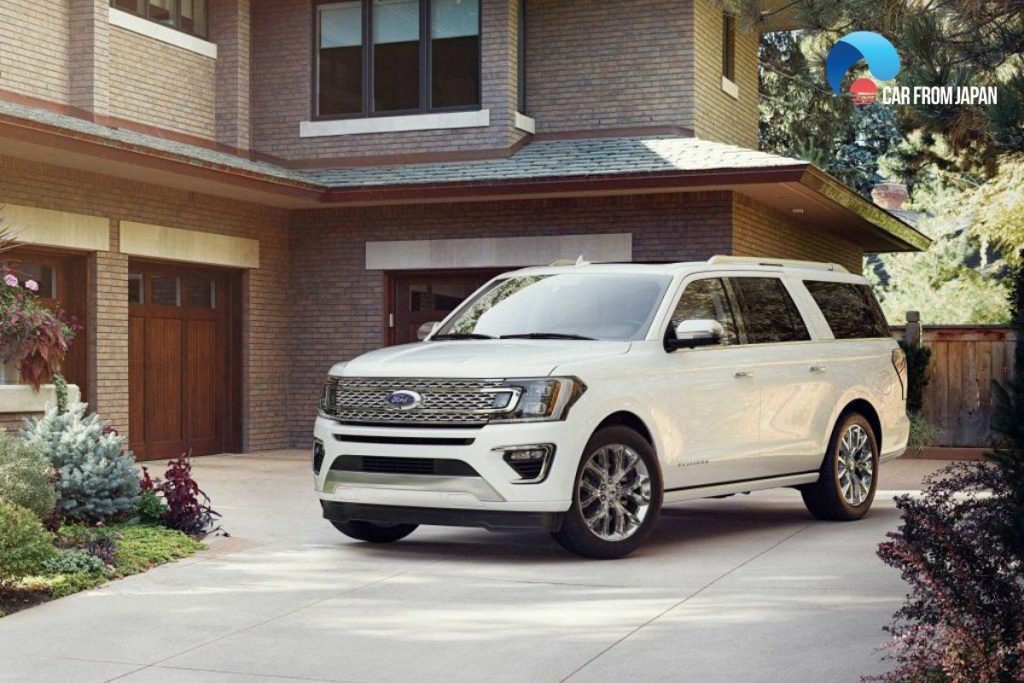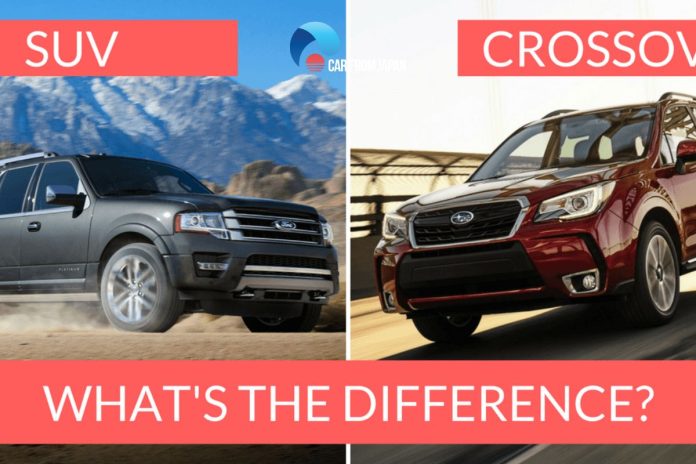SUVs (sports utility vehicles) happened to be one of the highest sold vehicle segments but what is a crossover car?
Well, they are the ones that are currently taking the place of the SUVs. Ten years ago, an SUV was the first choice for a family car but the choice has now shifted to crossovers.
Both are large, spacious vehicles and look almost similar but there is a certain difference between suv and crossover.
If you are looking for a family car, know the distinctions between the Crossover vs SUV to make an informed decision. But first, drivers need to be able to know which is which.
Contents
What is a Crossover?
To answer the question “what is a crossover”, here is the basic knowledge for all car owners. Crossover Utility Vehicle, also known as CUV, is the full name of a crossover.
If some of us are familiar with the SUV (Sports Utility Vehicle), Crossover shares many similarities that sometimes it is quite hard to tell the differences.
With an all-wheel drive option, Crossover can travel on almost every terrain, from highways, and streets to mountain roads. Also, they are usually taller than a normal car.
The difference between SUVs and crossovers can be covered quickly by performance area and capability. Talking about performance areas, crossovers’ strong point is to have great fuel efficiency.
Who does not love a car that uses less gasoline compared to others? However, if you want to tow, pull, or carry something quite heavy, a trailer for example, it will be quite a challenge for CUV.
What is a SUV?
On the other hand, Sports Utility Vehicles (SUVs) are created to be steady and durable. Some vehicle owners prefer a rugged car, and an SUV is perfect for them.
Not only is it built tough, it can also go off-road with no fear of damaging the suspension, alignment, or chassis of the car.
To be more specific, SUVs are designed to be set off the ground much higher than normal cars. Last but not least, SUV drivers can have a wider field of view.
Crossover Vs SUV: The Major Variations
The most distinct difference between SUVs and Crossovers lies in their platform. The body of an SUV is structured on a truck chassis while it is a car chassis for the crossovers.
Due to having a more robust platform and compatible suspension and drivetrain, SUVs can cruise smoothly on off-road tracks, which a crossover cannot. To make it simple, crossovers are car-like, while SUVs are truck-like.
Here are detailed explanations of the difference between SUVs and Crossover.
The structural design
The crossovers feature a unibody structure where the body and frame (the foundation of the vehicle) are one single piece. What does crossover mean?
Well, these vehicles combine the features of SUVs with passenger cars like a hatchback or station wagon. They get the name as they blend the styles of different models.
With its feature unbody architecture, the Crossovers have the body and the chassis form one single structure. On the other hand, car mechanics give UVs a body-on-frame construction.

And it makes a huge difference between Crossover vs SUV. Not only body-on-frame cars are more capable and durable, they are also very good at managing the driving experience.
Contradictorily, unibodies are lighter, more comfortable, and more efficient on the pavement.
Read More: 10 Affordable Compact Crossover SUVs
The SUVs use two separate pieces for this purpose, having a ‘body on frame’ architecture.
In conclusion, the unibody structure is lighter, providing quicker, smoother rides with better fuel efficiency. On the other hand, the heavier body-on-frame helps the vehicle to be more stable and durable.
Applications
One main difference between SUVs and Crossovers is the application. The unique design of the crossovers makes them much lighter than SUVs.
Also, they are built to make driving the car more convenient and improve the ride quality, which most customers enjoy. The heavy-duty SUVs are designed for challenging tracks and heavy hauling duties.
Safety
Safety is another difference between Crossover car vs SUV. Some people argue that SUVs are safer in an accident because of their heavy, sturdy nature.
It is true in the case of low-speed collisions. They don’t turn upside down as easily as crossovers and the post-accident repairs are also simple in most instances.
But, a crossover is a safer option when it is a serious accident. The body and chassis of these vehicles have more crumple zones. So, the body takes most of the collision force, keeping the driver and passengers rather safe.
Chances are a high-speed collision will destroy the vehicle but the occupants will suffer less severe injuries than they would have in an SUV.

Crossover Vs SUV: Are the Terms Interchangeable?
In a few cases, yes. People often use the term SUV to mention both crossovers and SUVs. The tendency was more common before the SUVs started drawing criticism for their poor mileage.
After that, automakers started using the term crossover, indicating the contrast between SUV versus crossover.
It would be wrong to call a body-on-frame SUV a crossover. For example, Mercedes G-Class, Ford Expedition, and Chevrolet Tahoe are SUVs by design. Calling them crossovers would be a mistake.
On the other hand, you can use the term for the popular family haulers such as Acura MDX, Lexus RX, and Grand Cherokee because they are crossovers by design.
What Car Should We Buy?
Able to answer the main question What is the difference between an SUV and Crossover, car owners can tell what car they should buy. However, in case you are still wondering which cars to choose, this is our recommendation.
If you are looking for a vehicle with fuel efficiency, and elegant yet large storage space, then a crossover like C-HR will be your best choice.
Not to mention, a crossover can also have large space for passengers and acceptable highway driving. So if car owners prioritize these features, a crossover will be your cup of tea.
On the other hand, SUVs’ ability to go off-road smoothly, carry heavy equipment, and tow campers or trailers regularly attracts many drivers. Not to mention, this type of vehicle provides high-ground vision for drivers.
Watch this video from Auto Gear to understand more about these 2 car types!
FAQs on Crossover vs SUV
Can a crossover tow as much as a traditional SUV?
Rarely. Even if engine power is similar, SUVs have stronger frames for towing.
Most crossovers are capped around 1,500–3,500 lbs, while SUVs can exceed 7,000 lbs.
Why do carmakers blur the line between crossover and SUV in marketing?
Because “SUV” sells better. Many crossovers are branded as SUVs for appeal, even though technically they’re closer to large hatchbacks or wagons.
Do crossovers perform worse off-road than SUVs by default?
Not always. Some AWD crossovers with good clearance (like Subaru Outback or Toyota RAV4 Adventure) can handle trails better than certain city-focused SUVs.
Why do crossovers often ride smoother than SUVs?
Their unibody design shares suspension setups with cars, giving a more comfortable, sedan-like feel.
SUVs feel stiffer because of their truck-based platforms.
Are hybrid and electric models more common in crossovers than SUVs?
Yes. Crossovers adapt more easily to hybrid/EV platforms.
SUVs with heavy frames make electrification more expensive and less efficient.
Conclusion
These categories cannot cover all types of SUVs and crossovers. Depending on the driver’s need, there are various selections from both these types.
Some prefer an SUV with fuel efficiency, while others want a Crossover with great capability. RAV4, for example, is a crossover with a truck-like capability that many drivers prefer.
Hope this article will help drivers understand and therefore tell the differences in the car comparison between Crossover vs SUV!




My insurance co says that my insurance rate is higher because my 2016 Rav4 is considered a truck. Who decides if a vehicle for insurance purposes is a car or a truck? The vehicle is registered in PA